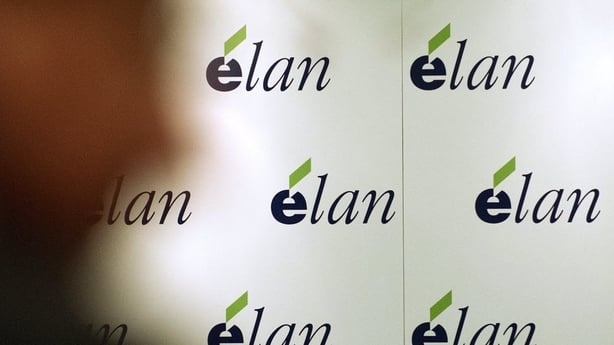The Revenue Commissioners have issued pharmaceutical company Perrigo, formerly known as Elan, with a tax demand for €1.6 billion.
The company was issued with a Notice of Amended Assessment for the year 2013, revising the amount of tax the Revenue claims is due.
It is believed to be the biggest tax demand the Revenue has issued to a firm in Ireland as a result of its own investigations.
The €1.6 billion sum does not include any interest or penalties which may apply.
The Revenue claims that the sale in 2013 by Elan of intellectual property for the MS drug Tysabri was taxed as trading income at 12.5%, but should have been treated as a chargeable gain, which is subject to a higher rate of 33%.
Perrigo, which bought Elan eight months after it had sold the Tysabri Intellectual Property, strongly disputes the Revenue assessment.
It says it will appeal and contest the assessment "vigorously" through all available administrative and judicial channels.
Revenue in €1.6 billion tax demand against Perrigo pic.twitter.com/Kf955zgTSz
— RTÉ Business (@RTEbusiness) December 21, 2018
In a statement, the company said: "On November 29, 2018, when Perrigo believed discussions concerning its tax treatment were ongoing, Irish Revenue Commissioners ("Irish Revenue") issued a Notice of Amended Assessment ("NoA") in the amount of €1,636 million against Elan Pharma.
"Elan Pharma was acquired by Perrigo in 2013. Perrigo strongly disagrees with this assessment and believes that the NoA is without merit.
"The notice asserts the claim that intellectual property sales transactions by Elan Pharma, including the sale of Tysabri to Biogen Idec, were not part of the trade of Elan Pharma and therefore should have been treated as chargeable gains (chargeable gains are subject to an effective 33% tax rate, rather than the 12.5% tax rate applicable to trading income)."

Perrigo says the Revenue's position is incorrect as a matter of law, based upon applicable case law, as well as both Irish Revenue published guidance and their related published precedents.
At the heart of the dispute is whether a company's earnings are classed as trading profits or chargeable gains.
The key test is how routine the transaction is considered to be - if a certain transaction type is a regular feature of a company's operations it would probably be assessed as trading income, but an irregular or one-off type of transaction is more likely to be considered a chargeable gain.
There are many case law and administrative precedents in which companies have disputed Revenue assessments based on the difference between trading income and chargeable gain.
The arguments depended on which tax was lower, Capital Gain Tax or Corporate Income Tax.
Perrigo argues that trading in intellectual property was a normal part of Elan's business.
We need your consent to load this rte-player contentWe use rte-player to manage extra content that can set cookies on your device and collect data about your activity. Please review their details and accept them to load the content.Manage Preferences
In its statement it says: "For 20 years, Elan Pharma's trade consisted of the active management of intellectual property rights, including acquiring, developing, holding, exploiting, dealing in and disposing of intellectual property rights for use in the pharmaceutical industry and Elan Pharma consistently filed its tax returns on this basis at a 12.5% tax rate.
"Elan Pharma had been involved in over 100 trades of intellectual property," it said.
The company says "this matter will not result in a material impact on Perrigo's consolidated financial position, results of operations or cash flows as of December 31, 2018".
In a filing to the US Securities and Exchange Commission, it says that no payment of any part of this amount is required to be made until all applicable proceeding have taken place "which could take a number of years".
When asked about the Perrigo statement, a spokesperson for the Revenue Commissioners said Revenue does not comment on individual taxpayers.
The €1.6 billion assessment is thought to be the highest tax demand issued in this country as a result of Revenues own actions.
The €13 billion assessment on Apple was the result of a State aid investigation undertaken by the European Commission, which is being challenged in the courts by both Apple and the Government.






